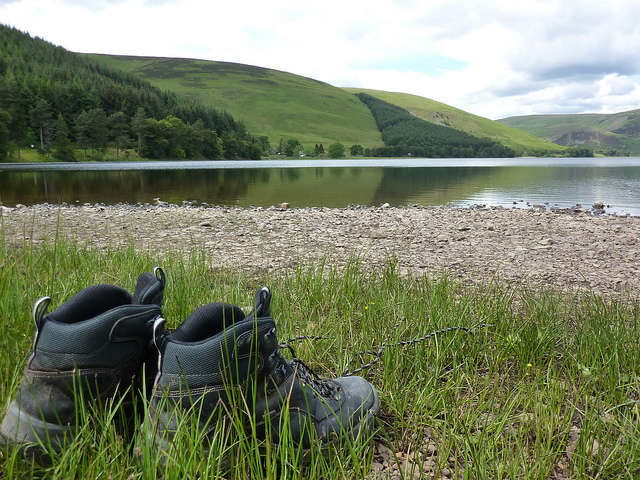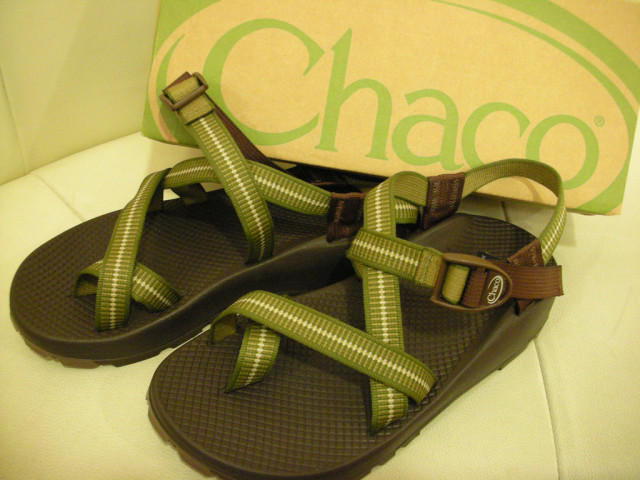Tips on clothes. Advice on gadgets. What to think about when compiling your toiletries kit. Things to think about when choosing bags. How to pack for transport days.
All are important things to consider for the long-term traveler.
Choosing gear and packing it all up can be stressful for travelers, no matter how experienced they are.
Below you’ll find a multitude of tips and advice from long-term travelers on how they go about packing for a big trip. Remember that everyone packs and travels differently, so take all this advice and adapt it to the kind of traveler you are!
Clothes and shoes

Dark Clothes are Your Friends
- Dark clothes maintain their appearance longer than light clothes. Plus they cover up stains and whatnot. White clothes are definitely no-go.
Fleece Will Warm You Up
- A fleece is a great alternative to a sweatshirt if you plan on visiting only warm-climate locations. It’s also a great addition to your cold-weather gear as it is an excellent layering piece. Microfleece is even better as it’s super lightweight yet still warm.
Leave Behind Delicate Clothes
- Do not bring any clothes that require hand-washing, ironing or other delicate care. After being crammed in the bottom of your bag and tugged on when you’re pulling it out, flimsy items do not last very long on the road.
Sarongs are Excellent Beach Towels
- Want to take a compact, quick dry towel but you’re worried about your time at the beach? A sarong works great as a beach towel as is extremely light and compact.
Sarong to the Rescue!
- A sarong can come to your aid while you’re in cold weather, too! Fold it length-wise and wrap it around your neck. Pull the two non-connecting ends through the loop and you’ll have a scarf to keep your neck warm. Or use it as a blanket on a bus, or throw it on the ground for a picnic. Sarongs are great multi-use items for travel.
Bring Clothes to Leave Behind
- Bring some clothes that you can trash on the road – a ratty t-shirt for example. Chances are, you’ll find nicer ones to replace them and you’ll need the extra space.
Double Up With the Bathers
- Swimsuits can double as excellent undergarments. Run out of underwear? Your bathers will give you an extra day. Women with bikinis may also find uses in their tops.
Snip and Snap
- Zip or snap on pant legs are pretty nifty things. Unfortunately, you look like a major dufus bending over to add on some material to the bottom of your shorts. Avoid wearing them in a hot-and-trendy city and unless you’re a sexy superstar, don’t push your luck and try wearing them into a club. But for everyday use or hiking, they really are great.
Looking Good in the Neighborhood
- Men – always pack at least one button down shirt. You never know when you need to dress up – a hot date, a sudden job interview, you name it.
Pack the Swimsuit
- Don’t leave without a swimsuit, or undergarments that can double as such. Even if you don’t plan on swimming, you’ll be surprised at what offers come up while you’re on the road.

Pack the Rugged Sandals
- Don’t bring flimsy slip-on sandals. Easy slip on translates into easy slip-off. Instead, invest in some rugged sandals that will last for your whole trip – no matter if you walking the streets of Hong Kong or climbing Mount Kilimanjaro. Tevas and Chacos are two highly recommended brands.
RTW Shoes
- Although hard core travelers may insist that the only shoes you need is a pair of hiking boots and set of sandals, social creatures know better. Make sure to bring some black shoes that will get you into a club as well (if you’re the clubbing type, that is).
Open Toed Shoes Can be a No-No
- Open-toed shoes will keep you out of more than swinging nightlife hotspots – it will also keep you away from some religious sites. Inquire ahead of time.
Flip Flops
- A $2 pair of flip flops may be too uncomfortable to wear all day walking around, but they’re great to use in hostel showers and a quick run to the bathroom. On the flip side (get it?), you can splurge on a nice pair of flip flops before leaving that will be comfortable to walk around in all day, are good for the beach, and hostel showers.
Pack Good Socks
- If you’re planning on hiking a lot or will be in really hot climates, splurge on a few pair of merino wool socks. They are expensive, but they wick moisture away from your feet and do wonders at preventing blisters.
Leave the Wetsuit Behind
- Unless your RTW trip is centered around diving or surfing, there is no reason to bring a wetsuit in your rucksack. Trust us. It’s heavy, bulky and although a great conversation start-up piece, not worth the room or the small amount of money you’d save by not renting one when you do hit the water.
Ditch Clothes
- Ended up ditching lots of clothes – could have taken less as it’s easy to pick up items to suit the climate wherever you are.
Pack Socks for Train/Bus/Plane Rides
- Always bring a pair of socks on long train/bus/plane rides. Even if it’s hot when you board your transportation, if there’s any AC at all, you’ll freeze.
Dirty Clothes – Contain the Smell
- Save yourself some time and put your dirty clothes in plastic shopping bags and then pack them in your rucksack. It helps contain the smell, lets you know what you’ve already worn and makes for easy laundry – just pull out the bags and go!
Gadgets

Taking a Phone
- Phones these days can replace all other gadgets for normal travel needs. As long as you don’t have to work on the road, are fine with the quality of pictures your phone takes, you can use a smartphone for everything. If you really want to travel light, ditch the laptop, tablet, and big camera and just bring your phone.
GSM and Sim Cards
- GSM phones work on more telephone systems around the world than any other phone. If you’re traveling from country to country, look into purchasing different prepaid SIM cards. SIM cards change your telephone number, but they also allow you to take advantage of in-country calling rates.
Get Converters Before You Go
- Although not impossible to find, it can be very difficult to find converters in another country. For example, if you are from the United States and are travelling to Australia, you will be able to find Australia-U.K. converters, Australia-U.S. converters and various other products, but United States-Australia may be impossible to locate. It’s best to get converters before you leave your home country.
Condense Your Technology
- It’s amazing what a cell phone can do nowadays. Consider all the functions your tech gadgets can do before dragging along another one. Many watches have alarm clocks, as do mobile phones.
Laptops and Tablets
- Unless you need one for work, think long and hard about whether it’s totally necessary to bring a laptop or tablet. They are nice to have, for sure, but you need to be okay with something bad happening to it. Would you be crushed or would it be a big financial issue to have your $1500 Macbook stolen? Then you may want to leave it at home.
Consider cheaper alternatives
- Think about getting a cheaper netbook or tablet to bring with you. While losing, breaking, or having a $250 gadget stolen does suck, it won’t hurt as much as having something happen to a nicer, more expensive gadget.
Toiletries/First Aid

Sunscreen Saver
- Sunscreen is a must have, and while we always advocate just getting stuff like this on the road when you need it, consider bringing some from home. If you wai to purchase it in a beach town, it will be considerably more expensive.
Consider Disposable Contact Lenses
- If you wear permanent contacts, consider switching to disposable lenses. They’re less hassle and easy to replace. For the diehard permanent lenses-wearers, make sure you bring a spare set of permanent lenses, just in case.
Contact Lenses Need Backup Glasses
- Contact lenses-wearers should bring a pair of glasses as back up. Glasses give your eyes a break and if you’re eyes are irritated, you’re not totally out of luck.
Pack Extra Set of Glasses
- If you wear glasses every day, bring two pairs AND a prescription from your doctor. You never know when one pair will break, be forgotten on the Eurail, etc.
Scissors – Leave Them in Checked Luggage
- Scissors are really nice to have, but make sure they’re in your checked luggage. They will get taken at security if you have them in your carry-on.
Snag a Sewing Kit
- The tiny sewing kits that you get at hotels are worth packing. You never know when you’ll need small scissors, thread or buttons. Alternatively, just packing a needle, some thread, and a few buttons will work, too.
Pack a First Aid Kit
- If you don’t plan on any intense excursions, a small first-aid kit containing an antibiotic cream and band-aids is still a recommended addition to your pack.
Grab the Quick Dry Towel
- They cost a bit more than your average towel, but the quick-drying speed and size more than make up for the price of chamois. Pack one!
Know Medicine Names
- Some medicines carry similar packaging but different names overseas – or vice versa. The pharmacist may not be able to speak English to convey what it is you’re buying. If you have any specific over-the-counter meds besides common ones like aspirin and ibuprofen, it’s best to bring ‘em.
Bring Written Prescriptions
- Bring all prescriptions with you when traveling for an extended period of time. If you can get your doctor to trust you, bring two copies in case you need to fill them in different places.
Check Expiration Date on Sunscreen
- If you purchase sunscreen at a market, make sure that it is in a box or has the expiration date stamped on the bottle. Expired sunscreen is ineffective and will not protect you from the sun.
Put Soap in Plastic Container
- Carry your soap in a plastic container – you can usually find one for less than $3 USD at any home furnishings store. They’re a lot less messy than plastic bags, and more durable. It’s never fun to unpack your bag after a long flight or bus ride only to find soap or shampoo all over the inside of your pack.
Two-in-One Conditioning Shampoos
- Two-in-one conditioning shampoos work great on short hair. However, if it’s any longer than two inches, your hair looks much better with separate shampoo and conditioner.
Pack Handi (baby) Wipes
- Handiwipes or babywipes rock while traveling. In addition to being a great way to clean your hands, they refresh you when you use them on your face. Particularly great on long plane, train, or bus rides or when you haven’t had shower access for a few days.
Transport packing tips (planes, trains, buses, etc.)

Things to Bring on an International Flight
- Pillows, eye coverings, and earplugs will all help you sleep on a long plane ride. A book, iPod, iPad, or similar device to waste time is also quite nice.
Bring Lotion on Flights
- Your mouth isn’t the only thing that gets dry on a long flight. Keep a small bottle of lotion on your carry-on bag to keep your skin moisturized and help protect you from bacteria.
Eye Cover in a Pinch
- If you forgot to snag the sleep shades that the airlines provided and you’re desperate for some eye-cover, use a light article of clothing as a substitute, such as part of a sarong or a shirt (just make sure it’s clean) and drape them over your eyes. Obviously, the darker, the better!
Ditch the Eye Shades
- Unless you plan on using them a lot, don’t worry about buying eye shades. Most airlines provide them on long international flights and are perfectly fine in a pinch.
Bring the Ear Plugs
- Earplugs are an essential travel item. They’re small, light and indispensable – especially when your bunkmate is snoring so loud you think a train is passing through the room.
Pack Vitamins for Jet Lag and Sicknesses
- Vitamins A, C, and E are antioxidants and can help with jet lag, stress, and health. Double up before, during, and after your flight. One of the best ways to fight colds is to take a lot of vitamin C, easily found in high quantities in orange juice. Many pharmacies also carry them in pill or tablet form.
Passing the Time on Trains/Buses
- Even if you aren’t a writer or artist, bring a journal or small sketchbook. You’ll be glad you have one when you’re on a long train ride.
Bags and other large items

Backpack Buying
- When buying a backpack, make sure that it is absolutely, totally comfortable (within reason). Don’t take two steps with it on your back, and nothing in it, and decide this is the pack you want to carry on your back for the next year. Weigh it down (a reputable store will have weighted bags to put in a pack to test out), wander around the store (preferably in your hiking boots) and then decide if it’s something you’ll be able to stand.
Add an Extra Duffel Bag to Your Pack
- If you are only checking one item, throw an empty duffel bag in your rucksack. You’ll be glad you had it when your bag starts to overfill or you don’t have the time to pack everything perfectly before rushing off to your next destination. Keep in mind, however, that if you fill it, you’ll have to carry it, so don’t bring anything too large.
Zip Lock Bags Save Hassle
- Zip-lock sandwich bags are great for keeping everything clean and organized in your bag. It’s especially important to keep makeup, shampoo and any other liquid separate from your clothes if you want to avoid a big mess and sticky bag.
Vacuum Bags Save Space
- Reusable vacuum bags sound like a great idea…if you have a vacuum. Many hostels and hotels will let you borrow theirs if you ask nicely.
Day Pack Rain Protection
- When picking a day pack, look for one that can withstand the elements of rough and tough use and weather. You’ll be surprised by how many rainstorms you’ll get caught in – especially if you’re traveling to Asia during the rainy season.
Ditch the Pillow
- Don’t bring a pillow on the road. If you plan on camping, grab an extra pillowcase and stuff it full of dirty clothes. Plus, it’s a great way to keep all of your dirty clothes together!
Sleeping Bags, yes or no?
- Unless you’re bringing a tent as well, there is no reason to bring a sleeping bag. Clean linens are almost always included in the price of a hostel room. A sleep sheet or liner will do the job when the linens are less than desirable – at a fraction of the size, and cost.
Appropriate Sleeping Bags
- If you insist on bringing a sleeping bag on your RTW adventure, invest in one that is appropriate for where you are going. If you’re sticking near the equator, there is no reason to drop 300 bucks on one that will keep you warm to -80 degrees.
Gadgets and Backpacks
- When figuring out how to pack your rucksack, take advantage of the loops and gadgets connected to your bag. Elastic cords are great for holding in things, and the bottom is an excellent place for attaching a sleeping bag or bedroll.
Must Bring: Plastic Shopping Bags
- Plastic shopping bags are your best friends. Always keep a few extra around. They’re great for wrapping up food, storing extra stuff when you run out of room in your rucksack, separating wet or dirty clothes and great trash bags for train or plane rides.
Remove Old Luggage Tags
- Remove old luggage-destination tags from baggage. Incorrect tags can cause confusion and lead to bag misplacement.
Pack Carry-on Carefully
- Carry-on rules are always changing, so make sure you’re up to date on each airlines’ and countries’ rules and regulations for what you can and can’t bring in your carry-on bag.
Keep Room in your Bag at All Times
- If you’re cramming your bag full before you go, how will you have room for anything you pick up on the road? Try to build in space for objects because sending them home may cost you twice as much as the souvenir itself!
Miscellaneous Tips

Swiss Army Knives: Get One
- Swiss Army knives definitely come in handy when you’re on the road. Need to open that bottle of wine when you’re on a train? No problem. Want to cut some bread and cheese while you’re riding on the bus? Easy! Looking to pick your teeth after the food fest? They’ve even got that covered.
Leatherman: An Awesome Tool
- Don’t try to pack it on your carry-on bag, but a Leatherman is one of the best devices to have on the road. Knife, scissors, pliers, and bottle opener all in one. What more could you ask for?
Frisbee Fun
- Looking to have a little bit of outdoor fun on the road? Pack a frisbee – it can be easily tied or strapped on to a pack and can double as a plate – just make sure you wash it first!
Things to Leave Behind When Traveling
- Impractical things to bring on a RTW trip: wetsuit, cowboy boots, guitars, ski-jackets and significant others. Especially the last one. Just kidding. Kinda.
Think Hard About Bringing Big Items
- Think extra hard about bringing something like a guitar on a RTW journey. Not only is it big and bulky and hard to transport, it can also be very expensive to ship or fly with and can easily break.
Pick the Cards you Want to Carry
- Don’t bring the whole purse/wallet. Take out those grocery-store savings cards, those gas cards, frequent-buyer cards, and anything else that you won’t be using.
Leave the Glass
- Glass sucks. Don’t bring it. This includes moisturizers, nail polish or other items. If you want to bring these things, transfer them to more durable plastic containers. Besides, with the liquid restrictions on planes these days, it’s a pain anyway. Remember that you can always get what you need in your destination.
Pack the Cards
- A pack of playing cards is indispensable on a long train ride or flight. It’s a great way to break the ice and meet new people at hostels, too.
Flashlights are your Friends
- Miniature keychain flashlights rock, and headlamps are even better. Pack up your bag in the dark, navigate at night in the car and shine lights at annoying people.
Grab the Flask
- If you have a flask, pack it! They’re small, easily transportable and great for storing extra booze without the big bottle.
Grab the Twist Ties
- Twist ties/cable ties are a small little extra that you never expect to use, but always do. Throw some in your pack and use them for extra grip when your zipper breaks, or for a makeshift instant theft deterrent.
Pack Carabiners
- Carabiners – you know, the clippy things that rock climbers use for their harnesses and everyone else uses with their water bottles – really come in handy for securing things. Make to grab a few. They come in more than just monster harness-holding size: smaller, lighter, thinner (and cheaper) ones will probably do you just as well on the road.
Hefty Lock Love
- Although those small, cutesy mini-locks may be lighter and tinier, this is one item where it pays to bulk up in size: many hostels have self-lock lockers and the small lock loop can be too tiny to fit through the ring, rendering it useless.
Cut Out Unnecessary Pages from your Guidebook
- If you’re using a large guidebook to a general area, such as Let’s Go Europe or Southeast Asia on a Shoestring, and you will not be visiting some of the countries mentioned, use a sharp razorblade to cut out those sections of the guide to save room (and weight) in your pack.
Smaller Guide Books
- The biggest name guidebooks aren’t always the best – because they are top sellers, the restaurants, hostels, and places they recommend are often crowded with others who use the same book. Just because you loved Lonely Planet Vietnam, it doesn’t mean that Lonely Planet China will be better than Lets Go China: different guidebooks are written by different authors, with various writing styles and areas of expertise. Check out some of the comparatively smaller names in the guidebook world for alternatives to the big-brand books.
Get a Map Before You Go
- It is almost always best to have a city map BEFORE you arrive in a city. How else will you find the tourist office or your hostel? If you are bringing a smart phone, get a map prior to and download it to your phone in case you don’t have internet access when you arrive.
Don’t Pack Hardcovers
- Avoid carrying hardcover books unless you have a really, really, really good reason.
Skip the Jewelry
- Ladies (and gentlemen) leave all jewelry, except for a pair of your favorite stud earrings and the necklace you never take off, at home. Small things such as earrings are easy to lose or misplace.
Married folks – get simple, cheap replacement rings
- If you have expensive wedding or engagement rings that wear daily at home, put them in a security deposit box at home and go buy some simple silver bands – they shouldn’t cost more than $10-$20. These can become your “travel wedding ring” and you won’t have to worry about your more expensive rings.
RTW with Pets
- It is very, very difficult to take a pet with you while travelling around the world. Some countries do not allow in pets from other nations and those that do can require quarantine times of up to 6 months. Best to leave Fluffy at home.
Break the Ice
- Hacky-sacks are small and lightweight additions to your backpack, but are a great icebreaker when you’re standing around, waiting for a train.
Photo credits: Bods, koalazymonkey,